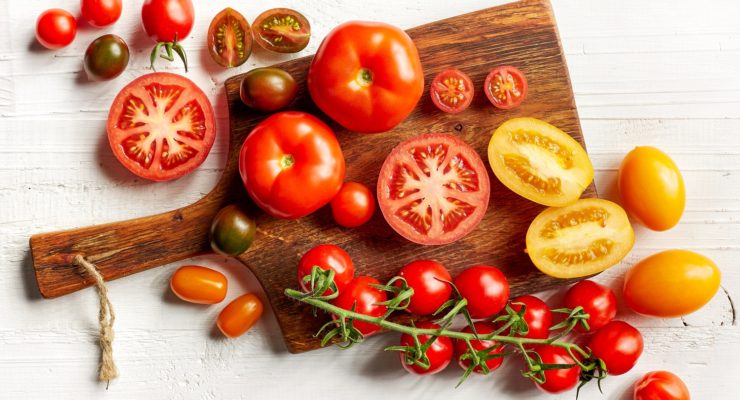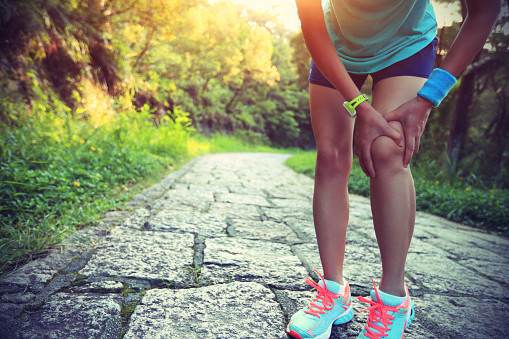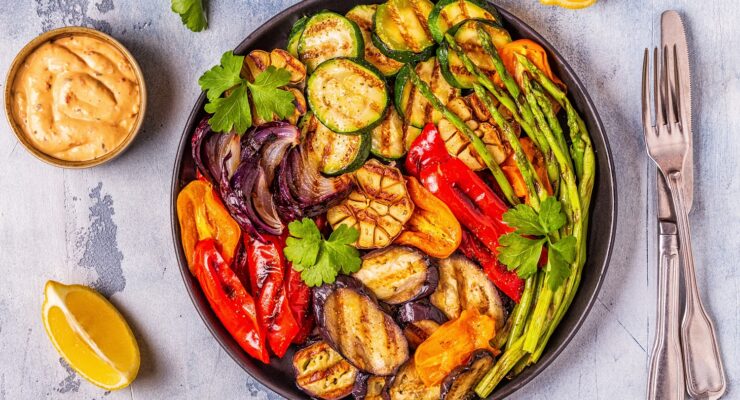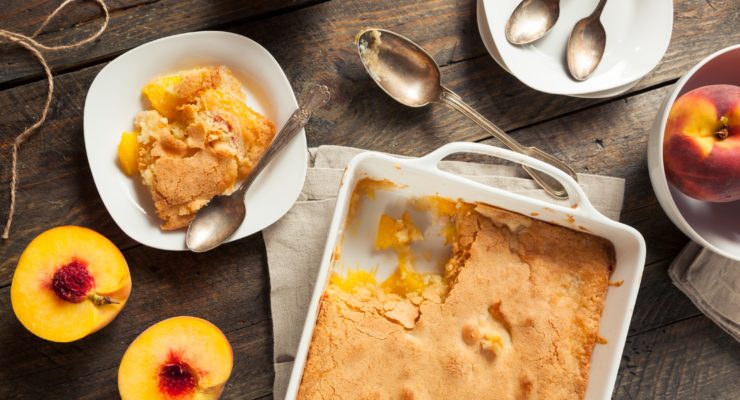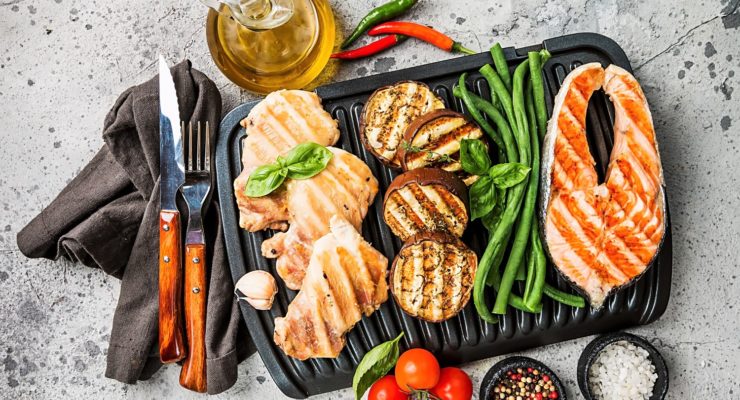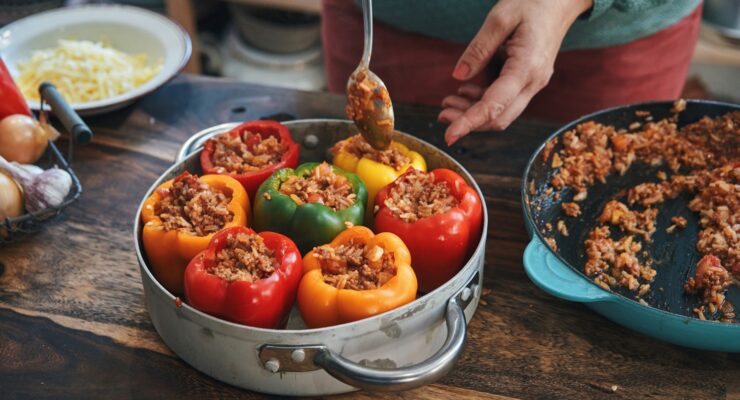Beauty Food: 6 Nutrients for Healthy Hair, Skin and Nails
Article posted in: Diet & Nutrition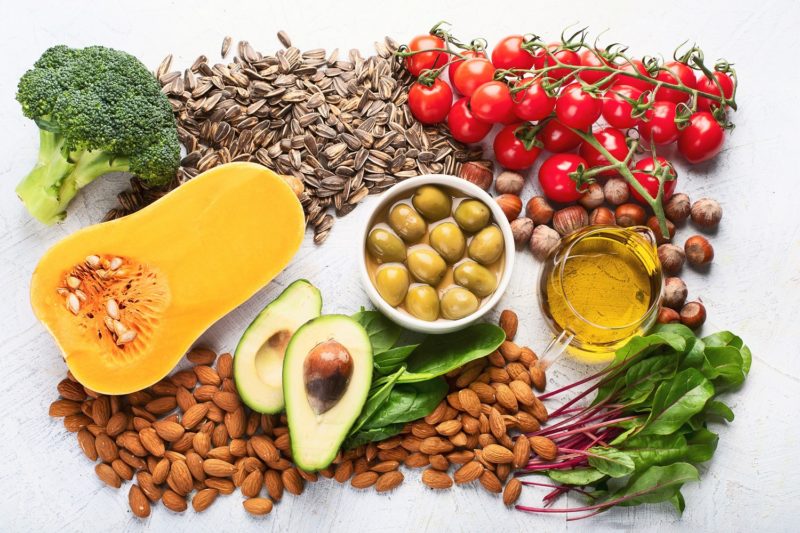
Sure, you can try every iteration of your favorite shampoo, buy fancy face creams and moisturize your cuticles to your heart’s content—and your hair, skin and nails will likely reap the beauty benefits.
However, the vitamins and minerals that you eat can also affect how great you look and feel—and you’ve likely got room to optimize your nutrition for an even better daily life. According to the peer-reviewed scientific journal Dermato-Endocrinology, “Beauty comes from the inside.”1
Here are six essential beauty-boosting nutrients, and the foods to find them in:
1. Vitamin C

Also known as ascorbic acid, your body needs vitamin C to make collagen, a protein that serves as one of the main building blocks of skin. Collagen keeps your skin from sagging and is necessary for wound healing.2,3 Loops around the sun don’t have to completely ruin your hair, skin, and nails. Vitamin C also serves as a powerful antioxidant, with some studies suggesting that it can even help prevent skin damage induced by ultraviolet (UV) light.3
Foods high in vitamin C include:
- Citrus fruits and their juices
- Red and green peppers
- Kiwi fruits
- Broccoli
- Strawberries
- Tomatoes2
2. Vitamin E


According to Oregon State University, “Vitamin E is a fat-soluble antioxidant that is essential for the maintenance of healthy skin. Naturally occurring vitamin E is not a single compound; instead, vitamin E is a group of molecules with related structures, some of which may have unique properties in skin.” With its antioxidant properties, vitamin E can absorb the energy from UV light, which damages skin and leads to wrinkles and sagging. It also has anti-inflammatory properties in the skin and works with vitamin C to strengthen cells.4 One small study also found people with hair loss experienced an over 30 percent increase in hair growth after supplementing with vitamin E for 8 months.5
Foods high in vitamin E include:
- Vegetable oils, like sunflower or safflower
- Nuts, like peanuts and almonds
- Sunflower seeds
- Green vegetables, like spinach and broccoli6
3. Vitamin D


While the jury is still out on the extent to which vitamin D can lead to hair regrowth, not having vitamin D negatively impacts hair health. Some studies have even found that low vitamin D levels may be associated with female pattern hair loss, the most common type of hair loss in women.7 Other research suggests the symptoms of alopecia areata—an autoimmune condition that results in hair loss—may be more severe in people with low levels of vitamin D.8 Like vitamin C, vitamin D also may play a role in wound healing.9
Foods high in vitamin D include:
- Fatty fish, like salmon and tuna
- Fish liver oils
- Vitamin-D fortified foods, like milk, breakfast cereal and orange juice
- Beef liver, cheese and egg yolks (small amounts)
- Mushrooms (small amounts)10
4. Biotin


When most people think of vitamins for hair, skin and nails, biotin may be the first thing to come to mind. “Due to its relatively low cost and abundance of availability in cosmetic products, biotin has become the new trend for consumers wishing to have longer, healthier hair and nails,” says researchers in the journal Skin Appendage Disorders.11
Low levels of vitamin B7, also known as biotin, can lead to hair loss.12 In one 2016 study, biotin deficiency was found in 38 percent of women who were experiencing hair loss.11 Most commercially-available hair, skin and nails supplements are extremely high in biotin. A few smaller studies suggest biotin supplements may help strengthen weak and brittle nails.13 However, research on biotin supplementation is limited. “Future studies are needed to determine whether biotin supplements might improve hair, nail, and skin health, especially among healthy individuals,” says the National Institutes of Health Office of Dietary Supplements.14
Foods high in biotin include:
- Eggs, fish, meat and organ meats (e.g., liver)
- Vegetables like sweet potatoes, broccoli and spinach
- Nuts and seeds12
5. Omega-3 Fatty Acids


Omega-3 fatty acids are healthy fats that have been shown to help protect your heart, lower blood pressure and even reduce inflammation.15 What you may not realize is that omega-3s may also benefit your skin and hair.16,17 Research suggests omega-3s may help protect against sun damage, as well as help keep your skin stay moist, firm, flexible and smooth.16 Some preliminary studies suggest omega-3s may boost hair growth and reduce hair loss.18,19
Foods high in omega-3s include:
- Fatty fish like salmon, mackerel, and tuna
- Nuts and seeds like walnuts, flaxseed and chia seeds
- Plant oils, like flax oil and canola oil
- Fortified foods like some brands of eggs, yogurt, milk and juices20
6. Zinc


Zinc is a mineral that is essential for every stage of wound healing, from skin repair to preventing infections. Zinc functions as an antioxidant.21 According to the Journal of Drugs in Dermatology, research shows that zinc may reduce sebum production in the skin and protect against bacteria and inflammation.22 It’s also used as a mineral on sunscreens to protect the skin from sun damage.
“Moderate zinc deficiency causes pigmentation changes, decreased hair and nail growth, and skin lesions on body sites exposed to repeated pressure and friction in particular,” says Oregon State University. They explain further that six percent of all of zinc in the body is found in the skin. Zinc oxide can also protect the skin from sun damage and is commonly used as a “safe and effective physical sunscreen.”23
Foods high in zinc include:
- Oysters
- Red meat, poultry and seafood like crab and lobster
- Fortified cereal
- Beans, nuts, whole grains and dairy (limited amounts)24
Sources:
- https://www.ncbi.nlm.nih.gov/pmc/articles/PMC3583891/
- https://ods.od.nih.gov/factsheets/VitaminC-Consumer/
- https://lpi.oregonstate.edu/mic/health-disease/skin-health/vitamin-C
- https://lpi.oregonstate.edu/mic/health-disease/skin-health/vitamin-E
- https://pubmed.ncbi.nlm.nih.gov/24575202/
- https://ods.od.nih.gov/factsheets/VitaminE-Consumer/
- https://www.ncbi.nlm.nih.gov/pmc/articles/PMC5007917/
- https://www.ncbi.nlm.nih.gov/pmc/articles/PMC6380979/
- https://lpi.oregonstate.edu/mic/health-disease/skin-health/vitamin-D
- https://ods.od.nih.gov/factsheets/VitaminD-Consumer/
- https://www.ncbi.nlm.nih.gov/pmc/articles/PMC5582478/
- https://ods.od.nih.gov/factsheets/Biotin-Consumer/
- https://www.mayoclinic.org/healthy-lifestyle/adult-health/in-depth/nails/art-20044954
- https://ods.od.nih.gov/factsheets/Biotin-HealthProfessional/
- https://my.clevelandclinic.org/health/articles/17290-omega-3-fatty-acids
- https://lpi.oregonstate.edu/mic/health-disease/skin-health/essential-fatty-acids
- https://www.medicalnewstoday.com/articles/omega-3-for-hair
- https://www.ncbi.nlm.nih.gov/pmc/articles/PMC6164340/
- https://pubmed.ncbi.nlm.nih.gov/25573272/
- https://ods.od.nih.gov/factsheets/Omega3FattyAcids-Consumer/
- https://www.ncbi.nlm.nih.gov/pmc/articles/PMC5793244/
- https://pubmed.ncbi.nlm.nih.gov/23652948/
- https://lpi.oregonstate.edu/mic/health-disease/skin-health/minerals
- https://ods.od.nih.gov/factsheets/Zinc-Consumer/

